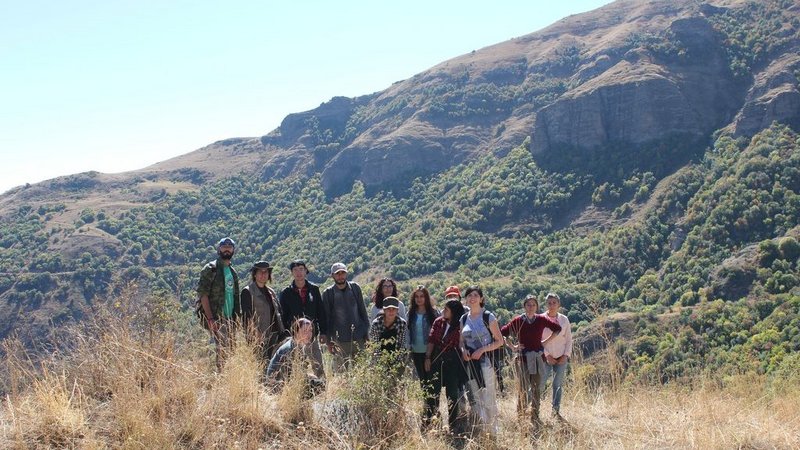Strengthening Genetic Biocontrol Capacities under Climate Change in Armenia | ArmBioClimate

Project coordinator: Marine Arakelyan
Coordinating institution: Yerevan State University (YSU)
Partner institutions: University of Veterinary Medicine Vienna (Pamela Burger), University of Natural Resources and Life Sciences, Vienna (Gábor Mészáros), Medical University of Vienna (Julia Walochnik), Scientific Center of Zoology and Hydroecology of National Academy of Science (Sargis Aghayan), Institute of Botany after A.L. Takhtajyan of National Academy of Science (Alla Aleksanyan)
Partner country: Armenia
Project duration: 1 April 2023 – 30 March 2027
Project overview
The emergence of novel invasive species and the risk of zoonotic disease outbreaks, as a result of climate change are major challenges for biosecurity management worldwide. Therefore, the capacity to monitor and mitigate these challenges in Armenia needs to be strengthened, not only nationally but also regionally. This is particularly important as Armenia is located at the crossroads between Europe and Asia, in the corridor between the Caspian and Black Seas.
The ArmBioClimate project aims to establish an early warning system for monitoring the distribution of zoonotic parasites, the virulence of pathogens, and the spread of invasive species, by strengthening research and human capacity. Strengthening genetic biomonitoring tools will enable early risk assessment of disease outbreaks associated with alien invasive species and accelerate the implementation of appropriate management actions to reduce future pressures on the ecosystems and human health. The golden jackal in Armenia will be used as a model to study species dispersal and the associated spread of potentially zoonotic diseases. It fits into the broader themes of wildlife conservation, agriculture, animal welfare and public health in line with the One Health approach. It contributes to the achievement of the United Nations Sustainable Development Goals (SDGs) 3, 4, 5, 13 and 15.
The project will include a wide range of activities benefiting both researchers and students in Armenia and Austria, such as the modernisation of different master’s programmes at Yerevan State University (YSU), a PhD scholarship at MEDUNI, the establishment of fully equipped laboratories, annual summer schools at the YSU biological field station, and other workshops, trainings, student/staff mobilities.